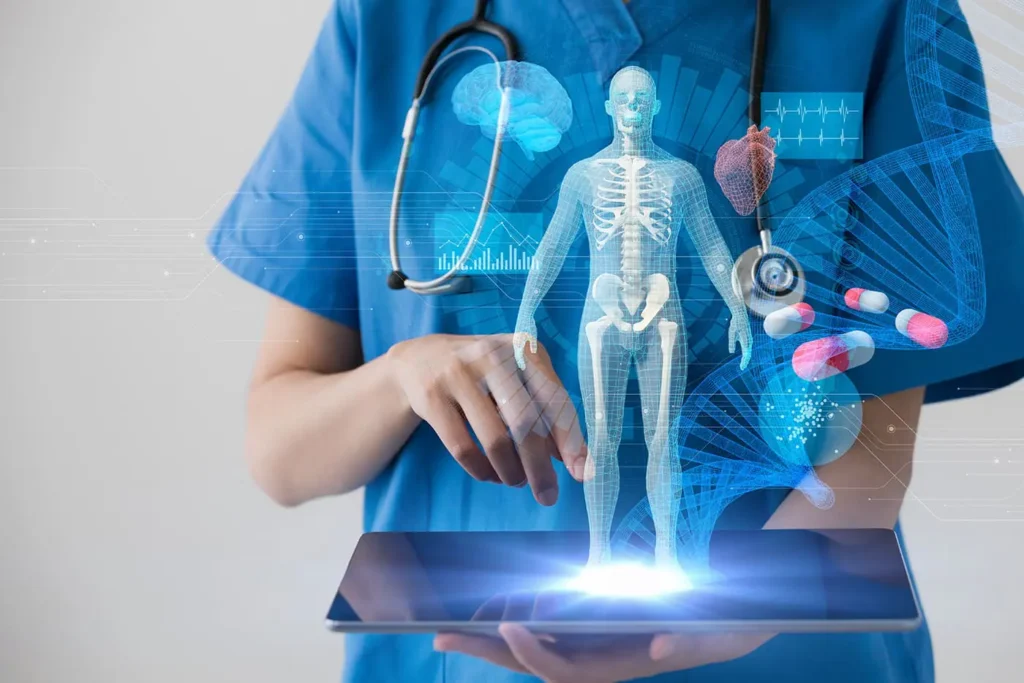
The demand for personalized healthcare services increased as the pandemic affected nearly everyone on Earth. As people became more conscious of their health, they began to look for services that would be reliable and tailored to their needs. AI has been predicted to be the next big thing that will impact the entire world. Experts in the healthcare sector are searching for ways this new technology can improve how medical care is delivered.
Experts in this field have already begun applying AI to the medical industry in many different ways. Here are a few ways that AI is already helping the healthcare industry.
Predictions based on data analysis
During the pandemic, the biggest challenge was the lack of medical services. There was not enough of everything needed to treat everyone. Medical service providers are able to predict patient numbers and future needs using AI predictive analysis. This allows them to be prepared well in advance for an approaching crisis.
Natural Language Processing for Diagnosis and Interpretation
AI was designed to be able to understand natural human speech. AI can provide useful information by utilizing characteristics such as speech recognition, data analytics, data interpretation, and other similar methods. AI’s machine-learning feature is designed to improve recognition accuracy over time. AI can help diagnose more accurately and start treatment earlier.
Machine Learning and Neural Networks
AI can be used in precision medicine with its machine-learning feature. This means that it can predict the type of treatment required based on the patient’s history, symptoms, and other factors. AI’s analytical power can be used to suggest a treatment that is likely to work for a particular patient. The neural network technology, a higher level of machine learning, is used in applications such as predicting the likelihood of a patient contracting an illness. Some symptoms may indicate a risk to the patient’s health. AI can provide a more precise diagnosis by analyzing data that is beyond the perceptions of humans.
Perform surgeries and assist with medical procedures
Robots have been used to assist surgeons in procedures such as the Da Vinci Surgical System or to perform surgery. In various parts of the world, thousands of industrial robots have been installed in healthcare facilities and medical premises. These smart machines can also assist in surgery and perform other pre-programmed functions, such as positioning patients, lifting items, assembling them, and delivering supplies. Programming them to perform other tasks can enhance their performance and functionality.
Encourage patient participation in treatment
According to studies, if the patient does not actively participate in the treatment process, this can be a barrier to achieving the desired results. After diagnosing a patient’s condition, medical care providers develop a treatment plan that must be adhered to in order for the patient to improve. It is often seen that results can take time or even not appear if the plan or behavioral changes are not made. AI can help patients stay on track with their treatment plan. AI interactive devices can help with medication timing, recalling to follow up, keeping the pills in stock, and other important steps of the plan. In the future, these new technologies will have to be integrated into nursing and medical training. So, non-compliance by patients with the course can be avoided. Positive outcomes can be achieved within the timeframe expected, and good health can also be assured with proper patient engagement.








